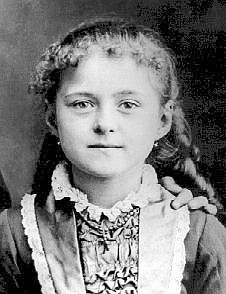Low Sunday
-------
Alone with God
By Father J. Heyrman, S.J.
Low Sunday – Dominica in Albis (Octave of Easter)
APPARITION TO THOMAS AND THE OTHER APOSTLES
(Jn. 20: 24-29)
1. On the eighth day after Easter, the Apostles once again were gathered together in the Cenacle, and this time Thomas was with them. Notwithstanding the unanimous testimony of his brethren he stubbornly refused to believe in the Resurrection. Suddenly Jesus stood in their midst, and straight away addressed Thomas.
2. Petition: The grace to be, and ever to remain, one of those whom Jesus called blessed because they have not seen and have believed.
I. The Obstinacy of Thomas
We do not know why, but Thomas was not with the other Apostles when, on the evening of Easter day, Jesus appeared to them in the Cenacle. On his return to the group the others told him, “We have seen the Lord! But he said to them, Except I shall see in His hands the print of the nails, and put my finger into the place of the nails and my hand into His side, I will not believe.”
These challenging words where prompted by the disappointment of a headstrong man. Thomas lacked neither generosity nor courage. When Lazarus lay sick, and Jesus spoke of returning to Judea, where their lives were in danger, it was he who had said to the others, “Let us also go, that we may die with Him” (John 11:16). And now he is the only one who has not seen the risen Master; and this arouses his resentment. There might have been lamentable consequences if Jesus had not intervened.
Don’t we all know of such occasions, when we have made a mistake and, though in out heart of hearts we know better, we take shelter behind pretexts and sophistry; we are discontented, we know we are wrong but we are too proud to confess that we have erred? The sooner we plead guilty, in such cases, the better it will be for us.
II. Jesus Rescues Thomas
Just as in the case of the disciples of Emmaus, so here our Lord acts as the Good Shepherd who goes in search of the straying sheep and carries it back to the fold.
“And after eight days again his disciples were within, and Thomas with them. Jesus cometh, the doors being shut, and stood in the midst and said, Peace be to you. Then He said to Thomas, put in thy finger hither, and see my hands; and bring hither thy hand and put it into my side; and be not faithless but believing. Thomas answered and said to him, My Lord and my God.” (Dominus meus, et Deus meus!)
No sooner had Thomas beheld Jesus looking at him with infinite love than his obstinacy vanished. The Master’s invitations to “lay his finger into the place of the nails” made him feel profoundly humble; he cast himself at the feet of Jesus and from the depths of his contrite heart uttered the most sublime profession of faith found in the Gospel, “My Lord and my God.” (Dominus meus, et Deus meus!)
Admire our Lord’s way: how, knowing Thomas thoroughly, He reached out, through the apostle’s flimsy armour of resentment, to his true nature so fundamentally generous and faithful.
III. The Last Beatitude
“Jesus saith to him, Because thou hast seen me, Thomas, thou hast believed; blessed are they that have not seen, and have believed.”
Thomas ought to have believed on the testimony of his companions without laying down any conditions. Far more meritorious had been the faith of John who, seeing the sepulchre empty and the linen cloths laid aside in an orderly manner, “saw and believed” that Jesus was risen.
“Because thou hast seen me, Thomas, thou hast believed.” On those words St. Augustine comments, “What he saw and what he touched was the man; what he acknowledged was the Divinity which he did not see and touch. But what he saw and touched destroyed his doubts, and made him believe in the Divinity.”
Therefore Jesus said: “Blessed are they that have not seen, and have believed.” We and all the generations that were not privileged to see Jesus when He was on earth, are grateful to Him for those words. Thirty years after those events St. Peter, writing to the Christian communities of Asia Minor, all converted Gentiles, said, “Rejoice … that the trial of your faith (much more precious than gold which is tried by fire) will bring you praise and glory and honour at the appearing of Jesus Christ: whom having not seen, you love; in whom also now, though you see him not, you believe: and believing shall rejoice with joy unspeakable and glorified; receiving the end of your faith, even the salvation of your souls” (1 Peter 1:6-9).
And St. Paul to the Romans, “May the God of hope fill you with all joy and peace in believing” (Romans 15:13).
Here below our happiness consists in loving Him, whom we have not seen.
Prayer:
Thy wounds, as Thomas saw, I do not see;
Yet
Thee confess my Lord and God to be.
Make me believe Thee ever more and more;
In Thee my hope, in Thee my love to store.
Jesus, Mary, I love Thee, Save Souls!

























0 Comments:
Post a Comment
<< Home